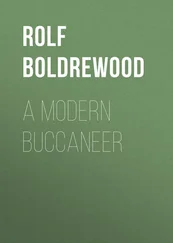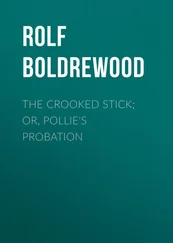Rolf Boldrewood - Babes in the Bush
Здесь есть возможность читать онлайн «Rolf Boldrewood - Babes in the Bush» — ознакомительный отрывок электронной книги совершенно бесплатно, а после прочтения отрывка купить полную версию. В некоторых случаях можно слушать аудио, скачать через торрент в формате fb2 и присутствует краткое содержание. Жанр: foreign_antique, foreign_prose, на английском языке. Описание произведения, (предисловие) а так же отзывы посетителей доступны на портале библиотеки ЛибКат.
- Название:Babes in the Bush
- Автор:
- Жанр:
- Год:неизвестен
- ISBN:нет данных
- Рейтинг книги:4 / 5. Голосов: 1
-
Избранное:Добавить в избранное
- Отзывы:
-
Ваша оценка:
- 80
- 1
- 2
- 3
- 4
- 5
Babes in the Bush: краткое содержание, описание и аннотация
Предлагаем к чтению аннотацию, описание, краткое содержание или предисловие (зависит от того, что написал сам автор книги «Babes in the Bush»). Если вы не нашли необходимую информацию о книге — напишите в комментариях, мы постараемся отыскать её.
Babes in the Bush — читать онлайн ознакомительный отрывок
Ниже представлен текст книги, разбитый по страницам. Система сохранения места последней прочитанной страницы, позволяет с удобством читать онлайн бесплатно книгу «Babes in the Bush», без необходимости каждый раз заново искать на чём Вы остановились. Поставьте закладку, и сможете в любой момент перейти на страницу, на которой закончили чтение.
Интервал:
Закладка:
Toil and strife, privation and poverty, labour and luck, all the contending forces of life are hushed as in a trance. As in hibernation, the physical and mental attributes appear to rally, to recruit fresh stores of energy. ‘The dead past buries its dead’ – sorrowfully perchance, and with silent weeping. But the clouds which have gathered around the spirit disperse and flee heavenwards, as from a snow-robed Alp at morning light. Then the roseate hues of dawn steal slowly o’er the silver-pure peaks and glaciers. The sun gilds anew the dark pine forest, the purple hills. Once more hope springs forth ardent and unfettered. Endeavour presses onward to victory or to death.
To the Effingham family came a natural surprise, that, under their circumstances of exile and misfortune, any cheerfulness could occur. The parents possessed an air of decent resignation. But the younger members of the family, after the first days of unalloyed wretchedness, commenced to exhibit the elastic temperament of youth.
The seamanship displayed on the staunch sailing ship commenced to interest them. The changing aspects of sea and sky, the still noon, the gathering storm-cloud, the starry midnight, the phosphorescent fire-trail following the night-path of their bark – all these had power to move the sad hearts of the exiles. And, in youth, to move the heart is to lighten the spirit.
Wilfred Effingham, true to his determination to deliver himself over to every practical duty which might grow out of their life, had procured books professing to give information with regard to all the Australian colonies.
With difficulty he managed, after an extended literary tour involving Tasmania, Swan River, and New Zealand, to distinguish the colony to which they were bound, though he failed to gather precise information regarding the district in which their land was situated. He made out that the climate was mild, and favourable to the Anglo-Saxon constitution; that in mid-winter, flowering shrubs and delicate plants bloomed in spite of the pretended rigour of the season; that the heat in summer was considerable, as far as shown by the reading of the thermometer, but that from the extreme dryness of atmosphere no greater oppressiveness followed than in apparently cooler days in other climates.
‘Here, mother,’ he said, having mastered the latter fact, ‘we have been unconsciously coming to the exact country suited to your health and pursuits. You know how fond of flowers you are. Well, you can have a winter garden now, without the expense of glass or the trouble of hothouse flues; while you can cheat the season by abstaining from colds, which you could never do in England, you know.’
‘I shall be happy to have a little garden of my own, my son,’ she replied, ‘but who is to work in it? We have done for ever, I suppose, with head and under gardeners. You and Guy and everybody will always, I suppose, be at farm-work, or herding cattle and sheep, busy from morning to dark. How glad we shall be to see your faces at night!’
‘It does not follow,’ replied Wilfred, ‘that we shall never have a moment to spare. Listen to what this author says: “The colonist who has previously been accustomed to lead a life, where intervals of leisure and intellectual recreation hold an acknowledged place, must not consider that, in choosing Australia for his home, he has forfeited all right to such indulgences. Let him not think that he has pledged himself to a life of unbroken toil and unremitting manual labour. On the contrary, he will discover that the avocations of an Australian country gentleman chiefly demand the exercise of ordinary prudence and of those rudimentary business habits which are easily acquired. Intelligent supervision, rather than manual labour, is the special qualification for colonial success; and we do not err in saying that by its exercise more fortunes have been made than by the rude toils which are supposed to be indispensable in the life of an Australian settler.”
‘There, mother!’ said the ardent adventurer. ‘That writer is a very sensible fellow. He knows what he is talking about, for he has been ever so many years in Australia, and has been over every part of it.’
‘Well, there certainly seems permission given to us to have a flower-garden for mamma without ruining ourselves or neglecting our business,’ said Rosamond. ‘And if the climate is so beautiful as they say, these dreadful February neuralgia-martyrdoms will be things of the past with you, dearest old lady.’
‘There, mother, what do you say to that? Why, you will grow so young and beautiful that you will be taken for our elder sister, and papa would be ashamed to say you are his wife, only that old gentlemen generally marry young girls nowadays. Then, fancy what a garden we shall have at The Chase – we must call it The Chase, no matter what its present name is. It wouldn’t feel natural for us to live anywhere but at a Chase. It would be like changing our name.’
On board ship there is always abundant leisure for talk and recreation, especially in low latitudes and half calms. The Effinghams, after they had been a month out, began to feel sensibly the cheering effects of total change of scene – the life-breathing atmosphere of the unbounded sea. The demons of Regret and Fear, for the most part, shun the blue wave and lie in wait on land for unwary mortals. The ship was seaworthy and spacious, the officers capable, the few passengers passably agreeable. Gradually the tone was restored of Captain Effingham’s nervous system. He ceased to repine and regret. He even beheld some grains of hope in the future, black as the outlook had until now appeared. While the expression of sweet serenity and calm resignation which ever dwelt upon the features of Mrs. Effingham became heightened and assured under the concomitants of the voyage, until she appeared to radiate peace and goodwill sufficient to affect beneficially the whole ship’s company. As for the two little ones, Selden and Blanche, they appeared to have been accustomed since infancy to a seafaring life. They ran about unchecked, and were in everybody’s way and every one’s affections. They were the youngest children on board, and many a rough sailor turned to look, with something like a glistening in his eye, on the saucy brown-eyed boy, and the delicate little five-year-old fairy, whose masses of fair hair floated in the breeze, or were temporarily confined with an unwilling ribbon.
It seemed but the lengthening limit of a dream when the seaman at the good ship’s bow was commanded to keep a lookout for land; when, yet another bright blue day, fading into eve, and a low coast-line is seen, rising like an evening cloud from out a summer sea.
‘Hurrah!’ said Wilfred Effingham, as the second mate pointed out the land of promise, ‘now our life begins. We shall belong to ourselves again, instead of being the indulgently treated slaves – very well treated, I confess – but still the unquestionable bond-slaves of that enlightened taskmaster, Captain Henry Fleetby of the Marlshire .’
‘We have been very happy, my dear,’ said Mrs. Effingham, ‘happier than I should have thought possible in a ship, under any circumstances. Let us hope our good fortune will continue on land. I shall always look back to this voyage as the most wonderful rest that our poor wounded hearts could have enjoyed. Your papa looks quite himself again, and I feel better than I have done for years. I shall remember our captain, his officers, and his ship, with gratitude, as long as I live.’
‘I feel quite attached to the dear old vessel,’ said Annabel, ‘but we can’t go sailing about the world all our lives, like respectable Flying Dutchmen. I suppose the captain must turn us out to-morrow. Who would have thought we should regret coming to the end of the voyage?’
Читать дальшеИнтервал:
Закладка:
Похожие книги на «Babes in the Bush»
Представляем Вашему вниманию похожие книги на «Babes in the Bush» списком для выбора. Мы отобрали схожую по названию и смыслу литературу в надежде предоставить читателям больше вариантов отыскать новые, интересные, ещё непрочитанные произведения.
Обсуждение, отзывы о книге «Babes in the Bush» и просто собственные мнения читателей. Оставьте ваши комментарии, напишите, что Вы думаете о произведении, его смысле или главных героях. Укажите что конкретно понравилось, а что нет, и почему Вы так считаете.












